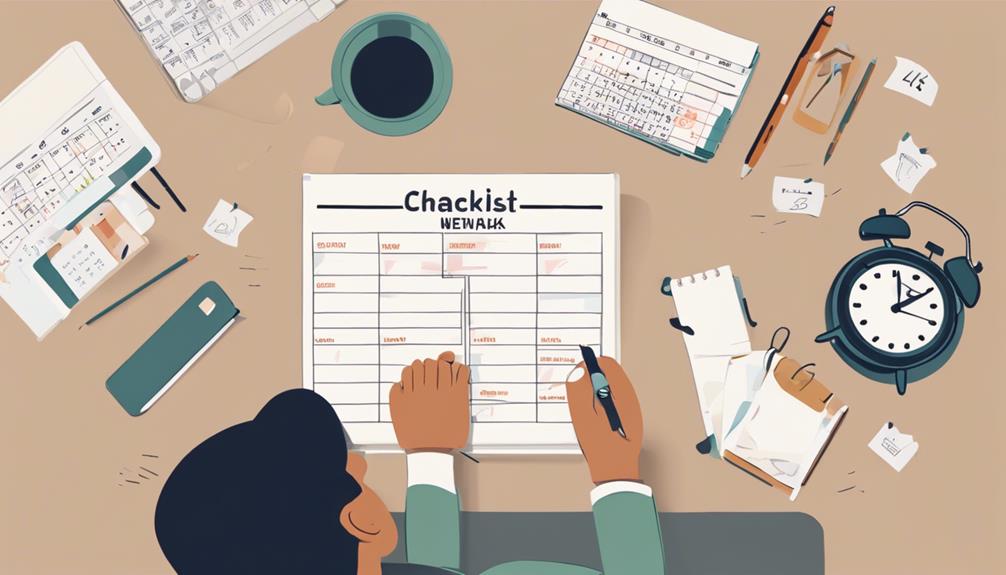As you set out on an English speaking course, it's vital to adopt a strategic approach to achieve success. While many learners struggle to make progress, incorporating a few key techniques can make all the difference. By setting realistic goals, practicing active listening, and focusing on pronunciation, you'll be well on your way to fluency. However, that's only the beginning. There are two more essential elements to add to your learning routine, which can substantially enhance your language skills and confidence.
Set Realistic Goals and Deadlines

English Speaking Course Success
Set Realistic Goals and Deadlines
A well-crafted roadmap is essential to achieving success in any English speaking course, and setting realistic goals and deadlines is the first crucial step in creating this roadmap.
By doing so, learners can identify what they want to achieve, prioritize their efforts, and allocate sufficient time to accomplish their objectives.
Realistic goals should be specific, measurable, achievable, relevant, and time-bound (SMART).
For instance, a learner may set a goal to improve their vocabulary by learning 10 new words daily, or to enhance their pronunciation by practicing for 30 minutes, three times a week.
Setting deadlines helps learners stay focused, motivated, and committed to their goals.
It also enables them to track their progress, adjust their strategy, and make necessary adjustments to stay on track.
Practice Active Listening Daily
Three essential skills form the foundation of effective communication in any language: speaking, reading, and listening.
While speaking and reading are often emphasized, listening is equally vital to understanding and responding appropriately.
To improve your English speaking skills, it is essential to practice active listening daily. This involves more than just hearing the words; it requires focus, attention, and comprehension.
Start by dedicating a few minutes each day to listening exercises.
You can use online resources, such as podcasts, audiobooks, or English language learning apps.
Listen to a short passage or conversation, then try to summarize the main points in your own words.
This will help you develop your ability to identify key information and understand different accents and speaking styles.
Consistency is key when it comes to improving your listening skills.
Make active listening a daily habit, and you will see significant improvements over time.
As you become more confident in your ability to understand spoken English, you will feel more comfortable participating in conversations and responding effectively.
Focus on Pronunciation Techniques

As you become more confident in your listening skills, it's natural to focus on the next step in improving your communication: speaking.
Pronunciation techniques are essential for effective speaking, as they directly impact how well your message is conveyed. Focus on developing correct pronunciation habits, such as proper intonation, stress, and rhythm.
Practice speaking in front of a mirror, record yourself, or work with a tutor to identify areas for improvement.
Pay attention to individual sounds, syllable stress, and word linking. For instance, focus on the correct pronunciation of vowel sounds, diphthongs, and consonant clusters.
Learn to use English pronunciation rules, such as word stress patterns and sentence rhythm. Additionally, practice speaking at a natural pace, avoiding filler words and pauses.
Immerse Yourself in English Media
Surrounding yourself with the sights and sounds of the English language is a powerful way to accelerate your speaking course success.
By immersing yourself in English media, you can improve your language skills in a more engaging and enjoyable way. Watch English TV shows, movies, and documentaries with subtitles in English to improve your listening and reading skills simultaneously.
Listen to English podcasts, radio shows, and audiobooks to get accustomed to different accents and speaking styles.
Read English books, articles, and news to expand your vocabulary and comprehension.
The more you expose yourself to English media, the more familiar you will become with the language's nuances and rhythms. This, in turn, will boost your confidence and fluency in speaking.
Make English media a part of your daily routine, and you will start to notice significant improvements in your speaking skills over time.
Engage in Conversational Role-Play

Engaging with English media can only take you so far – to truly master the language, you need to put your skills into practice.
One effective way to do this is through conversational role-play. This involves acting out real-life scenarios with a language partner, friend, or tutor, using English to communicate and navigate the situation.
This type of practice helps to build confidence, improve pronunciation, and develop fluency.
Conversational role-play can be tailored to your specific needs and goals.
For example, if you're preparing for a job interview, you can practice common interview questions and responses. If you're traveling abroad, you can practice ordering food, asking for directions, or making reservations.
The key is to focus on realistic, everyday situations that require you to think and respond quickly in English.
Regular role-play practice will help you develop the skills and instincts you need to communicate effectively in English, even in high-pressure situations.
Frequently Asked Questions
Can I Learn English Online Without a Teacher?
While it's possible to learn English online without a teacher, having a guided instructor can substantially enhance the learning experience, providing personalized feedback, correcting pronunciation, and facilitating interactive conversations.
How Long Does It Take to Become Fluent in English?
The timeframe to achieve fluency in English depends on various factors, including language learning ability, dedication, and consistent practice. With intensive study, it can take around 1-3 years to reach advanced proficiency, but individual results may vary substantially.
Are Language Learning Apps Really Effective?
Language learning apps can be effective when used consistently and in conjunction with other language learning methods. Many apps utilize interactive exercises, gamification, and AI-powered chatbots to engage users and improve language skills, but individual results may vary depending on dedication and learning style.
Can I Learn English if I'm Not a Good Student?
While academic performance doesn't directly correlate with language learning abilities, crucially, recognizing that learning English requires dedication, persistence, and the right approach, which can be developed and refined over time with effective strategies and support.
Will I Ever Be Able to Speak English Like a Native?
Achieving native-like fluency in English is a challenging yet attainable goal. With consistent practice, dedication, and exposure to authentic language environments, it is possible to substantially enhance your speaking skills and potentially reach a near-native level of proficiency.
Conclusion
To summarize, achieving success in an English speaking course requires a multifaceted approach. By setting realistic goals and deadlines, practicing active listening daily, focusing on pronunciation techniques, immersing oneself in English media, and engaging in conversational role-play, individuals can notably enhance their language skills. Incorporating these strategies into a learning routine enables learners to build confidence, improve pronunciation, and develop fluency, ultimately leading to course success.




0 Comments